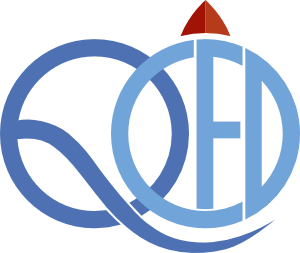Dieter Jaksch, Peyman Givi, Andrew J. Daley, Thomas Rung.
Quantum computing uses the physical principles of very small systems to develop computing platforms which can solve problems that are intractable on conventional supercomputers. There are challenges not only in building the required hardware, but also in identifying the most promising application areas and developing the corresponding quantum algorithms. The availability of intermediate-scale noisy quantum computers is now propelling the developments of novel algorithms, with applications across a variety of domains, including in aeroscience. Variational quantum algorithms are particularly promising since they are comparatively noise tolerant and aim to achieve a quantum advantage with only a few hundred qubits. Furthermore, they are applicable to a wide range of optimization problems arising throughout the natural sciences and industry. To demonstrate the possibilities for the aeroscience community, we give a perspective on how variational quantum algorithms can be utilized in computational fluid dynamics. We discuss how classical problems are translated into quantum algorithms and their logarithmic scaling with problem size. As an explicit example we apply this method to Burgers’ Equation in one spatial dimension. We argue that a quantum advantage over classical computing methods could be achieved by the end of this decade if quantum hardware progresses as currently envisaged and emphasize the importance of joining up development of quantum algorithms with application-specific expertise to achieve real-world impact.
Cite as BibTeX
@article{Jaksch_Givi_Daley_Rung_2023, title={Variational quantum algorithms for computational fluid dynamics}, volume={61}, DOI={10.2514/1.j062426}, number={5}, journal={AIAA Journal}, author={Jaksch, Dieter and Givi, Peyman and Daley, Andrew J. and Rung, Thomas}, year={2023}, month={May}, pages={1885–1894}} 